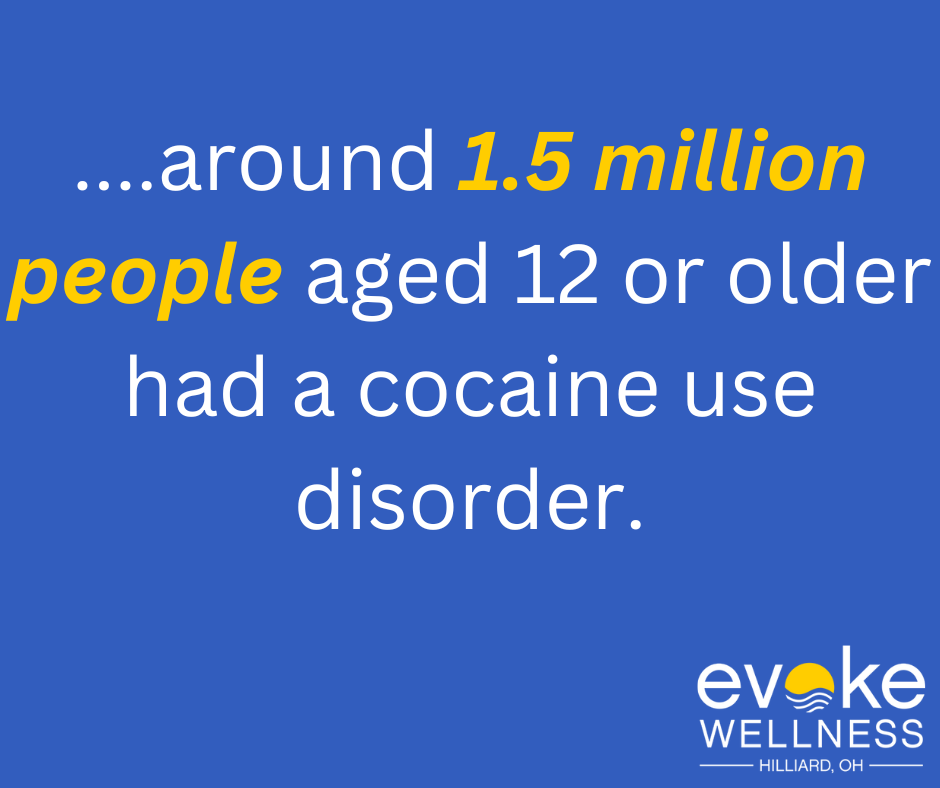Are you concerned that someone you care about might be struggling with cocaine addiction? Recognizing the warning signs early can be crucial for getting help. Cocaine abuse remains a serious issue, with over 5 million Americans reporting use in the past year. In this article, you’ll learn:
- Physical and behavioral signs of cocaine addiction
- Short and long-term health effects
- Recent statistics on cocaine abuse trends
- When to seek professional help
- Options for cocaine rehab and detox
By understanding what to look for, you’ll be better equipped to identify potential cocaine abuse and take action to support your loved one’s recovery journey.
Call us at (833) 949-1347 today or reach out online.
What is Cocaine?
Cocaine is an illicit stimulant drug derived from the coca plant. It produces short-term euphoria, energy and alertness. However, it’s highly addictive and dangerous.
Powerful Stimulant
- Cocaine is a potent central nervous system stimulant that increases levels of the natural chemical messenger dopamine.
- This contributes to cocaine’s pleasurable effects and increased energy.
Immediate Effects
- Short-term effects include constricted blood vessels, dilated pupils, nausea, hyperstimulation and bizarre behavior.
- It can lead to heart attack, stroke, seizure or respiratory failure – even in first-time users.
Highly Addictive
- Cocaine interferes with how the brain processes chemicals associated with pleasure and reward.
- This makes it extremely habit-forming, both psychologically and physically addictive.
Cocaine is an illegal substance with life-threatening side effects and high abuse liability. Understanding its dangers is crucial for prevention and treatment.
Signs and Symptoms of Cocaine Addiction
Physical and Psychological Signs
Cocaine addiction manifests both physical and psychological signs. Increased tolerance requires higher doses to achieve the desired “high”. Withdrawal symptoms like fatigue, depression, and drug cravings occur when stopping use. You may lose control over cocaine consumption despite the consequences.
Lifestyle Changes
Failing to cut back or quit using cocaine, despite attempts, is a red flag. Excess time revolves around obtaining, using, and recovering from cocaine effects. Physical health issues like nosebleeds, respiratory problems, and weight loss are common. Mental health struggles like anxiety, paranoia, and psychosis often arise.
Social and Behavioral Shifts
Problems at work, school, or home frequently result from cocaine abuse. Risky behaviors to obtain more cocaine, like stealing or dealing drugs, may develop. Family relationships deteriorate as the addiction takes priority.
According to the 2020 National Survey on Drug Use and Health, around 1.5 million people aged 12 or older had a cocaine use disorder. Recognizing these warning signs is crucial for seeking cocaine rehab and detox support.

Statistics on Cocaine Use and Abuse
Widespread Use
Cocaine is a powerfully addictive stimulant drug. Its abuse remains widespread – a staggering 11% of Americans over age 12 have tried cocaine at least once. That translates to over 5 million current cocaine users in 2018 alone.
High-Risk Groups
Young adults aged 18-25 have the highest rate of current cocaine use. Men are more likely than women to use cocaine. Individuals of certain ethnicities and employment statuses are also at higher risk.
Rising Overdoses
Concerningly, overdose deaths involving cocaine have risen in recent years. This is often due to cocaine being laced with synthetic opioids like fentanyl. Mixing cocaine with other substances greatly increases the risk of adverse effects.
Treatment Need
With millions struggling with cocaine addiction, demand for effective treatment is high. Detox to manage withdrawal, followed by inpatient or outpatient rehab combining behavioral therapy and peer support, can help individuals achieve lasting recovery.
Health Consequences of Cocaine Addiction
Cardiovascular Dangers
Cocaine inflicts severe damage on your heart and blood vessels. Common effects include irregular heart rhythm, heart attacks, and life-threatening ruptures of the aorta or other major arteries.
Respiratory Risks
Snorting cocaine causes sinus infections, perforated nasal septum, and nosebleeds. Smoking crack or freebase cocaine leads to lung damage, asthma attacks, and respiratory failure.
Neurological Harm
Cocaine highs are followed by intense cravings and depression as dopamine levels plummet. Long-term use causes paranoia, hallucinations, seizures, and strokes from restricted blood flow to the brain.
Infectious Diseases
Injecting cocaine or engaging in risky sexual behavior while high exposes you to HIV/AIDS, hepatitis, and other blood-borne diseases transmitted through needles or bodily fluids.
Your physical and mental health rapidly deteriorate from cocaine addiction. Entering a comprehensive rehabilitation program provides the medical oversight and support system needed to safely withdraw and recover.
Finding Cocaine Addiction Treatment
Inpatient Rehab Centers
For severe cocaine addiction, inpatient or residential treatment provides an immersive, drug-free environment. Around-the-clock care and intensive therapy focus on overcoming cravings and preventing relapse.
Outpatient Programs
Outpatient rehab allows you to live at home while attending counseling, group therapy and education sessions. This flexible option works well if you have a mild addiction and strong support system.
Therapy & Counseling
Cognitive-behavioral therapy (CBT) is very effective for cocaine addiction. CBT helps you identify triggers, cope with cravings and avoid high-risk situations. Family therapy heals relationships damaged by addiction.
Support Groups
Peer support groups like Cocaine Anonymous follow the 12-step model. Sharing experiences with others in recovery provides moral support and accountability on your sobriety journey.
Medication-Assisted Treatment
While no medications treat cocaine addiction itself, some prescriptions manage withdrawal symptoms or co-occurring mental health issues. Antidepressants, anti-anxiety medications or anti-craving drugs may be prescribed.
Cocaine Addiction FAQ
How do I know if I’m addicted?
- Can’t control cocaine use despite consequences
- Cravings and failed attempts to quit
- Increased tolerance requiring higher doses
- Withdrawal symptoms like fatigue, depression, anxiety
Stages of Addiction
- Experimentation leads to more frequent use
- Tolerance builds, requiring larger amounts
- Addiction forms, prioritizing cocaine over other interests
- Potential health issues and social impacts
Is Cocaine Highly Addictive?
Yes, cocaine is considered one of the most addictive drugs. An estimated 1 out of 6 who try cocaine become addicted. Its powerful stimulant effects rapidly lead to dependence.
Getting Help
Cocaine addiction is treatable. Professional rehab programs provide medical detox, counseling, and relapse prevention planning. Support groups and lifestyle changes aid long-term recovery.
Conclusion
In conclusion, recognizing the warning signs of cocaine addiction is crucial for early intervention and recovery. By understanding the physical, behavioral, and psychological indicators, you can take action to help yourself or a loved one. Remember:
- Physical signs: Dilated pupils, nosebleeds, weight loss
- Behavioral signs: Mood swings, financial problems, isolation
- Psychological signs: Paranoia, anxiety, depression
Recent statistics show cocaine use is on the rise, with a 26% increase in overdose deaths from 2019 to 2020. If you suspect cocaine addiction, seek professional help immediately. Cocaine rehab and detox programs offer comprehensive treatment options to support recovery and long-term sobriety. Don’t wait – take the first step towards a healthier, drug-free life today.
Begin Your Journey with Evoke Wellness at Hilliard
If you or a loved one is considering treatment, Evoke Wellness at Hilliard invites you to contact us. Our compassionate team is ready to answer your questions, discuss your needs, and help you take the first steps toward recovery. In Hilliard, you’ll find more than just a treatment program – you’ll discover a community dedicated to your wellness and success. Together, let’s embrace the journey to recovery and the promise of a new beginning. Call us at (833) 949-1347 today or reach out online.



